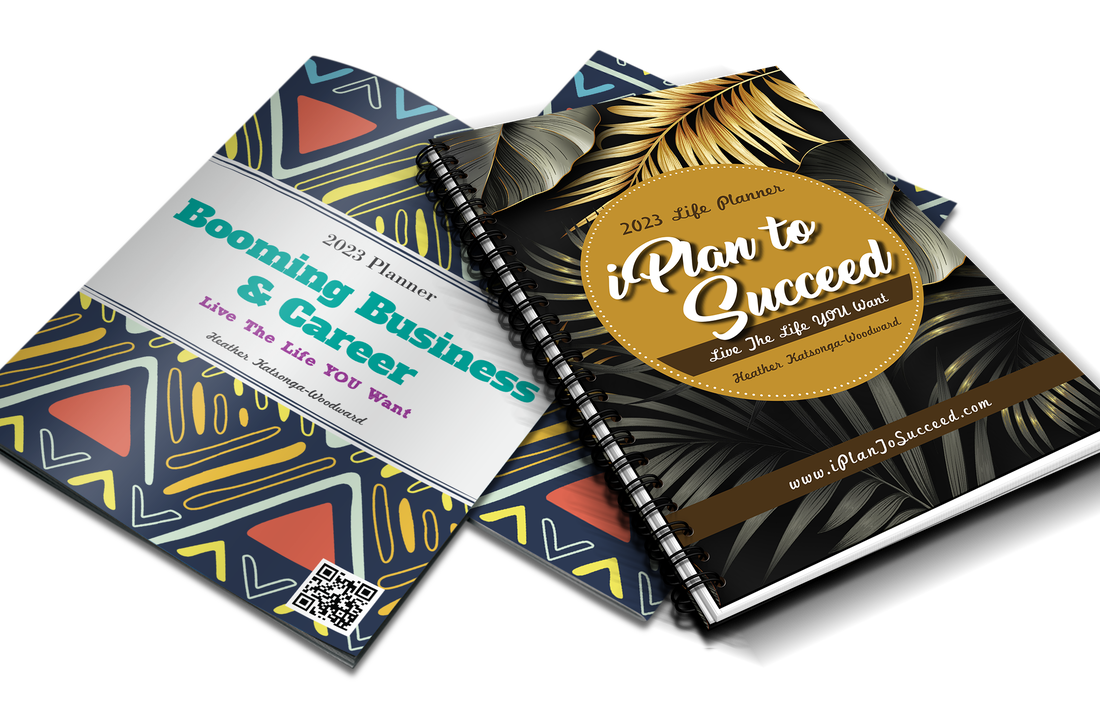|
Rating: 5*/5
One of the best self-improvement books that I have read in a very long time. I wanted to save almost every sentence because it was all so valuable but as that isn’t possible here are a few things I took note of as I listened to the audiobook: You don’t rise to the level of your goals. You fall to the level of your systems. That is, in addition to setting goals you need to set out a systematic way for achieving those long-term goals. Lofty goals + a rubbish system means you will not get to those goals. You become your habits, i.e You are the sum total of your habits. Habits do not restrict freedom, they create it:
Set implementation intentions. That is, make a plan beforehand about when and where to act. That is, how you intend to implement a particular habit. Environment is the invisible hand that shapes human behaviour. That is, if you want to improve anything about yourself it won’t happen if you’re not in a conducive environment.
Boiling water will soften a potato but harden an egg. That is, different people can react in different ways to the same environment. Human nature means we’d rather be wrong with the group than right by ourselves. The normal behaviour if the tribe often overpowers the desires of the individual. Habit stack to form new good habits. What does that mean? If you want to form a new good habit, make it automatic by setting a rule that makes you do it following an existing good habit. However, set it at a time that makes sense. There is no point trying to meditate as soon as you wake up when you know your kids will be dashing in and out of your room at that time. Choose a time that makes sense. Commitment devices e.g. automation make it impossible not to follow a good habit, e.g. save using a standing order. Competence is highly dependent on context. Select the right place to focus. Genes predispose but don’t predetermine. So, direct effort to areas that match your natural skills. People often choose a product because of where it is rather than what it is! E.g. supermarket products situated at the end of an aisle always sell faster due t higher foot fall in those areas. Success: The person that can handle the boredom the most is most likely to succeed. Neurons that fire together, wire together (Donald Hebb)… Repetition not time, creates a habit. If you practice something 30 times in 30 days you’re more likely to master it than if you do it only 4 times...this gives a different take on my yoga practice. …Practice to improve. James Clear shares an experiment in which a photography teacher divides his class into two groups: he tells group one that their final grade will depend on the number of pictures they take, i.e. 100 pictures gets an A etc.; the second group is told that they will be graded on the quality of the one picture that they choose to submit. To the teacher’s surprise almost all the best pictures come from the “quantity group”. The quantity group spent the semester taking pictures, experimenting with angles, colours, frames etc. whilst the quality group spent a lot of time considering what inputs they need to produce a high quality picture. There is a special lesson here: improvement of any sort requires repeated “doing” – a bit less thinking and a bit more doing will get you far. Want to improve at anything, practice. The more you practice in the gym, the fitter you will get; the better you practice healthy eating, the more you will maintain the body size and shape you want; the more you practice good financial habits, the better your financial situation will get; the more you study and learn, the more knowledgeable you will become on your chosen subject. Practice makes perfect, the best is the enemy of the good (Voltaire). Such an awesome book get it on amazon.com or amazon.co.uk Useful links on the website:
2 Comments
I was brought believing that beauty looks a certain way and success follows a certain stereotype but she puts paid to all those myths. I relate to Mrs Obama because she has a great depth that you simply don't find in a lot of people. When I read the first chapter of the book in which she describes the first night after the White House and observes the reaction of the dogs to neighbours' dogs barking, I was like wow, how is her life so busy yet she manages to be so in tune with her surroundings?
I love that she proves that education matters. Education and only education can give you the options in life that nothing else can. I'm not into celebrity worship, I'm not a Beyonce superfan and yet I remember that as far back as 2010/2011 I used google "Michelle Obama" to see her amazing outfits. She dresses amazingly well and to me, is a style icon. I know she is envious that we women have to put in so much effort in our appearance relative to men but you know what, she embraces how the world judges women and chooses her own style, she doesn't try to be anybody else. At this point I should probably say I would love to meet her but you know what, I would not like to meet her, I'd rather admire and worship her from afar. When we meet out idols we realise just how normal they are and I'd rather she just stayed in my mind as Super Power, a real life super hero. Mrs Obama makes me so proud to be alive in these times. It means everything to me that she exists as a black role model for my daughter. My daughter is lucky to be growing up in times when so many black women are visible, doing their thing and proving that skin colour is just that, skin colour, it doesn't need to limit you in any way, limitations exist only in our heads. Mrs Obama is successful in her own right and has been walking the halls of power since the late 1980s before she met Mr Obama. In Becoming Mrs O takes us right through from her upbringing on the Southside of Chicago, she introduces us to her family and the people that influenced her. She is open and candid about the challenges she faced as well as the fears she had growing up. She speaks openly about the apprehension she felt in having to raise her daughters in the public eye. She takes us through the turning points of their life and how surreal many things she experienced were. I am so glad she decided to write this book and let us into her world and how she became the Michelle Obama we see today. Becoming is an awesome book to have read at the end of 2018 when I am setting my 2019 goals. Get it on amazon.com or amazon.co.uk. Rating: 5/5
I started reading autobiographical and other non-fictional accounts of slavery in the summer of 2016. I don't know what sparked my interest, however, a friend suggested that sometimes reading fiction can provide better insights into an era and she was completely right. Someone Knows My Name, published under the name, The Book Of Negroes was enjoyable, informative, heart-breaking and ultimately a worthwhile read. I strongly recommend it. Available on Amazon.com and amazon.co.uk  Rating: 4/5 An interesting read. Besides a few jokes that were ill-placed or simply not funny, there is a good deal of intelligence in this book about how relationships work in the world of modern technology. All I can say is that I'm glad I'm not involved in this new world of dating, it's so complicated: People play text messages games with each other like never before. It appears all this choice is driving people crazy: we keep looking for something better - the next Tinder swipe might just be "the one". Oh and it looks like online daters are spending waaayy to much time doing the online bit and too little time doing the dating bit. Recommendations are that you meet your online potentials within under 10 messages, 6 according to Ansari. The whole point of online dating is to actually take the relationship offline and decide whether or not you have the necessary chemistry to make a relationship or friendship work. Aziz Ansari looked at the dating situation in a few countries, Japan was the most fascinating for me: The Japanese economy is facing a relationship crisis - not only are people not dating, huge swathes of Japanese people just aren't having sex anymore. Being a very patriarchal society men were used to having a certain position in the work and home; however, now that women are financially independent and not happy to just quit their jobs upon finding a husband, men don't know where they belong in the value chain anymore. Men are too scared to ask women out although women want to be asked out. Women are willing to ask men out but no man wants to date a woman that would ask, it's not seen as proper. Online dating is seen as so awkward that people don't even feel confident enough to use their own picture as their profile image; online daters normally use a random image such as their cat. The population of 127million is expected to fall to c.83 million by 2100. The Government is so worried that they're sponsoring dating programs and subsidising child-bearing with tax bonuses. The Japanese are at risk of going extinct. On the other side of the spectrum is Buenos Aires in Argentina where the men are so gang-ho they don't take no for an answer. Being harassed is the norm and bosses hiring motels out to have relations with their secretaries is seen as normal - talk about abuse of power. I'm all for finding yourself and exploring your options but for me websites like Ashley Madison are a sign of moral degradation. Yes, human beings aren't innately monogamous but if you commit to a marriage then you stick to the vows, you don't do things to hurt the person you claim to love. Definitely an interesting read, get it on amazon.com or amazon.co.uk. 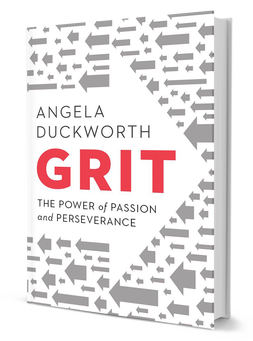 5/5 I expected to enjoy Grit by Angela Duckworth and I did, what I didn’t expect, however, is to find cause to dispute any of the book’s proposals… I’ve known the concept of Grit for ages as my sister is a PhD student in clinical child psychology and as a hobby I read lots of psychology books and many have referred to the concept of Grit. Now, most people would say that I am a stereotypically gritty person and generally, I would agree, however, I started to question this when I read the chapter on how extracurricular activities are a non-gameable indicator for grit. It makes complete sense that if you can stick to an extracurricular activity for a prolonged period of time then you are gritty and the longer you stick to the said activity, the grittier you are…or does it? I have never made a long-term commitment to an extracurricular activity, indeed, besides dabbling in lots of hobbies I have never even been interested in committing to any singular activity for a long time. In my opinion it is much more fun to dabble at a thing then move on once you get bored. This would explain why I have done things like a course in massage, beekeeping, piano, upholstery, life drawing, creative writing and a host of other fun activities but only until the course ends or I get bored. I also read a wide range of books as a hobby but I don’t stick to a genre. But, by nature, because I haven’t committed to any of them I thought well that means I certainly can’t be as gritty as those who commit. But, it then occurred to me that this argument would probably only be of value if I came from a culture that values extracurricular activities and I certainly do not. I learnt the art of deliberate practice at a very young age (although I didn’t know this is what I was doing): when I went to boarding school aged 11 I didn’t have many friends and as I like to use my time productively I decided to engage in studying. I’d take the week’s learnings to the library and go over them. I started writing very detailed study timetables at this age such that by default I’d be in the library from 3.30 to 5.30pm (classes finished at 3.00pm); dinner activities took place between 5.30 and 6.30pm and I’d be back to my studies from 6.30 to 8.30pm; this was delegated prep time. However, whilst most people did their homework at prep time, I usually spent most of this time studying and I did my homework during classes when I got bored or at break time. Sticking to this routine was really quite intense for an 11-year old: getting between classes, my dorm room and the library within 30 minutes required lots of organisation and didn’t allow for much time being wasted on chit chat but I stuck to the routine with a good success rate. Then something weird happened, all my grades started to improve and I noticed so I stuck to the same routine term in, term out. By the end of my second year in high school I went from someone who got a mix of As and Bs to someone who never got Bs. I went from Top 5 in my academic year to always first or second in the class. Mind you, my top competitor became my best friend at this point and we enjoyed healthy competition and moral support from each other. This, getting better and better grades, then became my passion and my mission. It is only in reading Grit that I’ve even sat back and properly considered why I did any extracurricular activities to begin with and I’ve come up with the answer:
At some point in my mid-teens I decided I’d like to go to the University of Cambridge. This was such a lofty goal for someone living in Malawi, one of the 10 poorest countries in the world, I didn’t even know where the money would come from. To anyone I told, it seemed like a complete fantasy and really, it was. But, with continued deliberate practice the goal was achieved and I graduated with 1st class honours although my goal was actually just a 2.1. I decided the moment I got to Cambridge that shooting for a 1st Class when I was in a world class institution made no sense whatsoever, it would only lead to stress and depression – I’m sensible like that. Getting a 2.1 from such a culture of excellence would be good enough and instead of working like a slave like I had in high school, I decided to invest spare time in making solid friendships so that is what I did. I got 2.1s in my first and second year missing a first by 0.7% in the second year and by some fluke got that 1st class degree in the 3rd and final year. Since graduating I’ve enjoyed good jobs at Goldman Sachs and HSBC and reasonable success in entrepreneurial pursuits so, I MUST be gritty so why can’t I commit to extracurricular pursuits? This is the answer / conclusion I have come to: Western cultures not only value sport and instrument playing, they’ve also set up competitive curriculum to cover these things so that people can measure their improvement. Indeed, in the West you can earn decent money with a careers in music or sport which adds even more value of these activities. Come to Africa and most people won’t even know that playing instruments can be graded or pursued as a serious career. It was only when my husband told me he had a grade 8 in playing the violin that I even knew people pursued music playing in such a structured manner. Footballers and most other sports personalities in Africa are for the most part very underpaid so no parent would encourage a child to play a sport in any serious capacity. To this day I see very little value in many sporting achievements that can’t quantified: the runner and the swimmer’s time can be progressively improved, I see the value in that effort, but if you’re not in a goal scoring position in say, football, hockey or basketball I think, what’s the point? How do we quantify your value if we can’t measure your personal goals scored or homeruns achieved? The result of my background is that as a culture very few people will pursue extracurricular activities as more than a simple hobby. For those that are less academic than I am it may be a very serious hobby and they may indeed stick to it for prolonged periods, perhaps for this category of people it can be a measure of grittiness but what of those many Africans and Asians that, like me, that don’t see much value in extracurriculars? What is our non-gameable indicator of grit? Get the book on amazon.com or amazon.co.uk. 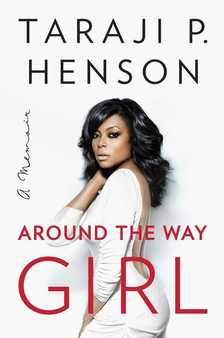 3.5/5 I love Cookie in Empire but I personally didn’t really enjoy Taraji’s Around The Way Girl. I usually rate books 4 or 5 if they are a must-read and were a thoroughly enjoyable experience for me; 3.5 means I really like the author but I would have lost nothing if I didn't read the book. In fact, if I was reading the physical book rather than listening to the audiobook I doubt I would have ever reached the end. Despite good use of language in bits, the book comes off like a very long resume or sales pitch and many parts seem over-choreographed, they didn’t feel genuine. The most cringe-worthy bit for me was when she recounted the moments before her dad died; the dramatic emotion she added to her voice somehow felt like she was acting out a part in one of her films. It’s from other parts of her book that I can tell the genuine love and affection she has for her dad. Whenever she recounted a scene from a film she likes or has acted in she went into too much detail; the only example of this I liked is when she talks about the scene in Empire where she thinks she has a date with her ex-husband, Lucious Lyon, only to find out it’s a family dinner and she tells Anika, his new girlfriend, that “Anika, this is an ass”. I love that scene and I loved it when she recounted it. I also liked her explanation of why that scene is actually deep. I should add that listening to this audiobook after Trevor Noah’s Born A Crime would probably make it less enjoyable because I really enjoyed Born A Crime, it spoke to my very heart. My love for Cookie wasn’t enough to enjoy this book but, if you’re interested in a career in film or are fascinated by the American film industry then you may enjoy reading/listening to this book. Get it on amazon.com or amazon.co.uk. 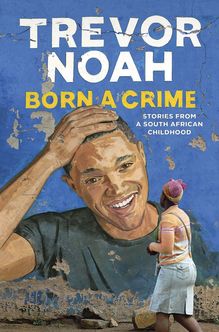 5/5 What an enjoyable book. Perhaps I enjoyed the book more because I am African and I’m raising a mix-raced / mixed-culture child but I thought this book was genuinely well written and well told I really felt the richness of Trevor Noah’s story. I learnt a fair amount about Apartheid South Africa as well as about the man himself. Trevor Noah said tonnes of very smart things like: we spend too much time being afraid of failure and afraid of rejection but regret is the thing we should fear the most. Failure is an answer, rejection is an answer but regret is an eternal question you will never have the answer to – what if? If only? I thought this book would be full of jokes and lack any sort of seriousness but Trevor Noah is, as I suspected, a very serious character. You will laugh, cry and anticipate as he tells his stories. Everything will feel super real. I loved it when he visits his dad after many years without contact wondering if his dad ever thought about him only to find his dad had a scrap book full of cut outs from every time Trevor had been mentioned in the news. It was such a warming encounter. There are so many good parts in this book just get your own copy on amazon.com or amazon.co.uk and enjoy. 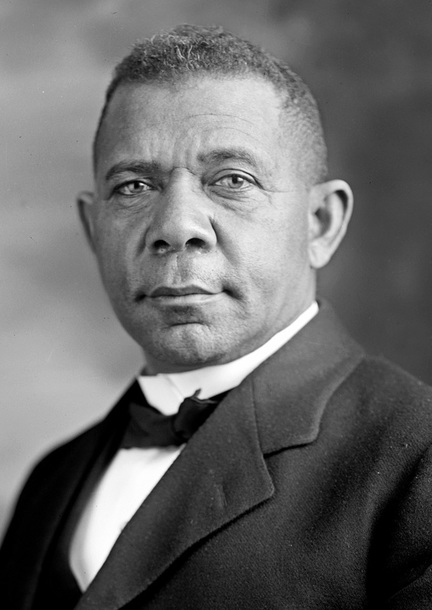 Rating: 6/5 In 32 years of being on this planet, this is by far the most fascinating book I have ever read and I read a lot. This book is a historical treasure and modern guide to business. I learnt things about race relations in the US, immediately following the abolition of slavery and it wasn't what I expected; I gained useful knowledge on how to think about education, civics, ethics, fund raising and public speaking. How so much was squeezed into one book is a real credit to Booker Washington. To read the autobiography of a man that was born in such a different time and place just gave me such a different perspective on life and especially on slavery. This book was written in 1901 by Booker Washington himself; he was born a slave but slavery was abolished before he was old enough to be too useful. That said, it was only when he was asked what games he played as a child that he realized that he could not recall any time in life when he had had a period dedicated to play. He’d always laboured to one degree or another. These sort of descriptions filled me with such a deep sense of pathos. To be honest I had tears on the tips of my bottom eyelids for most of this book not because any specific scene was horrific but because this book gave me a renewed sense of pride and dignity in African Americans and the enduring spirit of black people in general. I wish this book was recommended reading in schools; it’s so well written. Slavery is frequently talked about with a degree of shame. I hadn’t ever fully consciously thought about the nature of this shame and why it was felt until half way through the book when I started discussing its contents with a group that included some of my white friends. I realized that they were so uncomfortable about the things I was telling them that they weren’t looking me in they eye properly then it dawned on me, they feel ashamed and embarrassed by this discussion. None of the people at the table were American, I am not American, but for the first time I realized that because discussions of slavery are inevitably about white vs. black, white people, perhaps more so in Europe have a deep sense of shame that they belong to group that oppressed so many for so long. I personally think the guilt is neither productive nor necessary; it isn't all white people that oppressed black people and many helped in the fight to abolish slavery and many white people today help us in fighting against racial prejudice and injustice. History books tend to smile upon the oppressed and look down upon the oppressor, and rightly so. But this book is very clear in letting us know that the progression of negroes was very much due to huge donations, investments and advice from rich white people. Whites in the American South oppressed the minority black population as slaves from 1619 to 1865. In the book, when Booker is asked to teach a group of Indian students (who had come from India to learn English and other subjects) he is anxious as to how they will receive him because he at the time believed Indians thought themselves superior to the white man and far superior to the black man because black people had allowed themselves to be enslaved in a way that Indian people would not have. This is possibly the only line in the book I disagreed with. In addition to certain classes of Indian people being oppressed even today (e.g the untouchables, the Siddis, etc.), instances occur all the time where people oppress others even their own offspring. A recent notable example is the case in which Austrian Josef Fritzl kept his own daughter as a sex slave in the basement for 24 years! You can never blame the victim. Anyhow, I digress; here are some of the things I learnt from Up From Slavery by Booker T Washington. Many of these really warmed my heart. As a little boy Booker describes two specific instances that gave away some of his thoughts and feelings during the brief period when he lived life as a slave boy: He had no ancestry. The only elderly relative he knew was his mother. He didn’t even know when he was born except that it was in 1858 or 1859 (Wikipedia say 1856), the month and day were not known (slavery was officially abolished in 1865, just to give you a point of reference). He knew his father was a (white) slave owner from a nearby plantation but that was all, he knew no details about him and his father provided no financial or other assistance to his life. The book is quick to mention that although you might have expected black people to hate white people, in many cases it was quite the opposite. He said his owners were, for the most part, kind, decent people and, for instance, when their son was killed during the civil war there was a sense of genuine grief amongst the slaves second only to the grief felt in the big house. As a youngster the now dead young man used to reprimand his own people when they were being cruel to the slaves. Washington recounts one instance when he walked one of his young mistresses to school and saw the scene of young boys and girls learning. He says for him that scene was at the time better than his concept of paradise. He wished more than anything to be part of the learning himself. He recalls another scene when he sees his owner’s daughter eating some ginger bread and he decides there and then that if he ever reached a place in his life where he could eat ginger bread whenever he wanted just like he saw that day, then he would have reached the pinnacle of success. In the months leading up to the abolition of slavery in 1865 he recalls lots of quiet excitement amongst the negroes, this is what he calls black people throughout the book, negro or coloured. He says their singing and dancing lasted a little longer into the night as news of developments reached them via what was then called the grapevine telegraph. He said for a group who couldn’t read they stayed remarkably up to speed with all the latest developments. When they sang songs of freedom, whereas they’d previously been careful to state that they were referring to freedom in the next life they now dared to think that they would enjoy a taste of freedom in the present life. He recalls the exact events that occurred on the day slavery was abolished: He and all the other slaves were called to their masters’ house whereupon a long message was read at the end of which it was announced that they were free to do as they wished. There was inevitable joy and excitement, his mother kissed her children, but as soon as they returned to their log cabins there was a deep sense of, what now? He said most slaves left the plantation just so that they could believe that this was actually true, however, in most cases they returned and entered into paid contracts of employment with their previous slave owners. His own family left the plantation where they were slaves and went to West Virginia not long after the abolition of slavery where his stepfather had found work on a salt farm; this is when it got especially interesting for me. The place in West Virginia where they went to live was worse than the basic log cabin they’d come from because there were no rules about sewage disposal. About a third of the people in what must have been a small shanty town were the most illiterate and destitute white people Booker had ever seen. This stood out for me because you always imagine that blacks and whites were always segregated but in fact poor white people at the time also led lives that were far from comfortable. He says one of the comparative advantages black people had over white people in the South when slavery was abolished was that they had skills, lots of skills whereas the offspring of many white people in the South of America had almost none. They had never been taught things as basic as cleaning, cooking and repairing things let alone specific trades like being a blacksmith or a carpenter. Black people on the other hand had a wealth of monetizable skills. He says, and this was probably the most fascinating fact in the whole book, that some previous slave owners became so destitute that they came to rely upon their former slaves for food and money. No one ever tells you this when slavery is discussed. The two key things black people didn’t have was literacy and property ownership. Literacy was the first things most people yearned to have so day and night schools for black people quickly sprung up after 1865 containing a mixture of young and old. He discusses the hurdles he went through to get an education. Because this was his deepest desire he eventually managed to get himself into a learning institution called the Hampton. In fact, although he did so much more his initial ambition was simply to know enough to read a newspaper or a book. Before getting to Hampton he’d already learnt to read. Booker was his only name when he became a free man. Like most slaves he’d never had a last name; the first time he was asked for his name in a classroom he’d just seen that all his colleagues had two or three names so when his turn came he just said, Booker Washington, for no specific reason and the name stuck from that day. When he later learnt that his mother had actually named him Booker Taliafero at birth he added that to his name. Whilst later books suggest former slaves took on their owner’s last name Booker’s own biography from 1901 disputes this: he says they wanted to break away from that history and so chose their own names. Given he lived the times, I am inclined to believe him over other books I have read. Just prior to going to the Hampton he’d worked for a white woman who was known for being difficult and unable to hold down an employee for more than two or three weeks at a time yet he managed to work for her for 18 months during which time she became very reliant on him. He said she had most exacting standards but it was, in fact, those same standards that helped to secure his place at the Hampton. When he got there he was filthy having had to work his way to the part of Virginia where the school was located and as a sort of test he was asked to clean a room. He says he took more pride in that test than people now probably take in Harvard entrance exams. When his work was inspected, failing to find a spec of dust, it was decided he was good enough to be admitted to Hampton. One of the things that stood out to him in his time at Hampton besides the formidable man that ran it, a former general that all the students loved, admired and aimed to please, was one high status white woman that took a part in its running. Whilst he was a student there she requested he come to help her clean the school before it opened so he turned up for school two weeks early to do this. Opportunities like this were how he funded his education. His cleaning added up towards financial credit in the “accounts department”. He was astounded at why a woman of her social standing could work side by side with him, a negro boy, cleaning the school from top to bottom. He decided then that the only type of life worth living was one in which you dedicated yourself to helping others. His key mission was to bring up the status of black people but as a teacher he soon realized that a lot more had to be taught than just book learning. When he was asked to run a school in Tuskegee, he researched the surrounding areas to assess how black people were living. What he found shocked and appalled him: Most people who had been slaves for a lot longer than he had were eating a very bad diet although they had land they could farm to grow better food. I think he mentions that their diet was almost entirely pork and corn bread. This food wasn’t eaten at a table but on the go en route to work or as the children played usually without cutlery. Most people had no hygiene practices whatsoever: they did not bathe or brush their teeth. These things had to be taught in the school. Some families had bought things like an organ at $60 or a watch for $12 notwithstanding the fact that they could neither play the organ nor tell the time. And in fact, they were buying these expensive items when basics were missing. One notable time he was dining with such a family, I think they had a fine watch on display and yet when five of them sat to eat at the table there was only one fork between them. Forks cost a few cents but prioritising finances was a skill they had very little concept of; many were keen to own these objects to almost prove to themselves they had broken from the past. Most former slaves still had the whole family sleeping in one room. To explain the extent to which coloured people had been dehumanized, Booker recounts a time when he interviewed a former slave. When he asked him how many had been sold the day he had been sold the response was, “Five of us. Me, another man and three mules.” His classroom had people as old as 50 and as young as 15, everyone wanted to learn. From Tuskegee, Booker Washington grew into the formidable figure of African American history that we appreciate today. Everything about his life intrigued me but his earliest years were especially gripping. I also laughed at his differentiation of the English vs. Americans. Booker says he was fascinated at how servants in England dedicated themselves wholeheartedly to the role as they expected to specialize in the trade and hence took it very seriously where as in America the servant one day expected to become the master and hence was less consumed/dedicated to the role. He decided not to opine on which approach was better. He also said one thing he never got used in speaking to an English audience was their seriousness: things that would have an American audience roaring with laughter didn't cause the English to crack so much as a smile! Up From Slavery by Booker T Washington is available on amazon.com and amazon.co.uk. 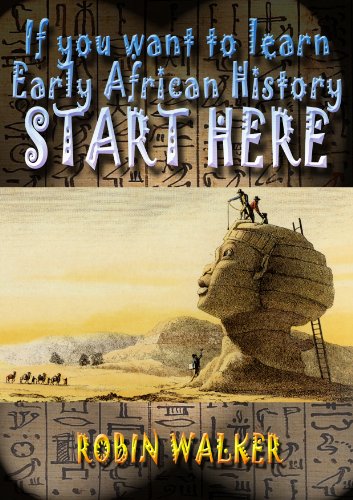 Rating: 5/5 Ask most people what they know of early African history and they will probably talk about slavery first. This book takes you away from that narrative. It reminds us of the rich cultural and academic heritage that Africans had for thousands and thousands of years before slavery was even an idea. The first half is all about classical African history the second half is a Q&A on various questions surrounding black history from African history to Black British history and touching on African American history. Robin Walker talks about the African empires that existed thousands of years before Christ and for hundreds of years after Christ and how they were on the decline long before slavery started. Two specific empires he discusses are The Songhai Empires of West Africa and the Monomotapa Empire of Eastern Africa. Apparently the biggest trade in these ancient and medieval empires was in books. Archaeologists have uncovered libraries with books in multiple languages. These African empires had trade links with Asia as early as the first century AD and built ships even all these hundred years ago. We mined steel, copper and billions of dollars worth of gold in the Monomotapa empire. Our architecture included 4 and 5 story buildings that travellers have remarked upon with great marvel in ancient texts. A specific building known as the labyrinth is believed to have been constructed in 3448 BC and was made of 3,000 apartments – 1,500 above the ground and 1,500 apartments below ground level. Excavations of Monomotapa buildings have even found toilets. It is therefore not the queen of England who was first to use a toilet. Beds have been found dating back to 3000BC. In Section 2, the Q&A, Robin Walker answers questions such as where did white people come from? Where did oriental people come from? He reminds us that current oriental feature are similar to the Khoisan people of Africa and all it would have taken to create oriental people is a touch of admixture with Europeans. The most famous Khoisan is Nelson Mandela. When I see him in my minds eye it is easy for me to imagine this to be true. He talks about how when an 8-volume book on the history of Africa was being compiled they wanted to attribute many ancient Egyptian achievements to the current Arab-like Egyptians. It was such a contentious issue that Unesco called 20 Egyptologists to debate the issue. Unfortunately 18 of the 20 were Arab or European and only two were African. You would have expected the 18 to thrash the two but the opposite happened: the two African scholars massacred the 18 with their research and evidence. These two essentially proved the blackness of the Ancient Egyptians. Apparently this is regarded as THE moment when contemporary Black scholarship really began. Egypt used to be all black but successive takeovers by the Assyrians, the Greeks, the Romans and later the Arabs led to the Middle Eastern Egyptians that we now see. Robin Walker notes that many scientific discoveries attributed to Europeans were frequently discussed in early writings by Ancient Africans. For example Charles Darwin is often attributed as being the first person to discuss natural selection but a 9th century book by a black Arab scholar called Al Jahiz discussed natural selection first. It has the unfortunate title of The Book of the Glory of the Blacks over the Whites which will have most white people in defensive mode without even considering the content. Ultimately though, For someone who just wants a flavor of Ancient African history which can be very difficult to absorb with all the dates and all the successive dynasties and the hundreds of kings and queens, this is the perfect size of book with only 100 pages. You will be left wanting to learn more about certain things but for this Robin Walker provides sources, mostly his own books, but also many names of other scholars are provided. Robin Walker importantly notes that many accomplished books of the late eighteen and early nineteenth century suffer from the problem of having a marked anti-Negro tone. One such book is A Tropical Dependency by English journalist Lady Lugard. He says it remains worth reading despite this drawback. On the other hand A History of Islam in West Africa by Prof. J Spencer Trimingham maintains a respectful tone throughout. In 2009 I took one term of Robin Walker’s Black History Studies course held in London so I know him to be a very accomplished writer on all things black history. It was through his course that I learnt the type of massive errors you will sometimes find in books. For instance, ancient travellers such as Herodotus went down the Nile and remarked upon the great structures he saw in Africa as well as the beauty of the black African people. Robin walker produced a penguin translation from the late 1900s (possibly the 1960s) and an older translation and he showed how a whole paragraph from the Greek writing had been completely removed in the Penguin books – a well-respected publication. Of course, it is such omissions of fact that help to write black people out of history. The specific paragraph removed highlighted the physical features of the people Herodotus saw – distinctly black feature; unfortunately for those who wanted the narrative to agree with previously published anti-negro writings that had us down as uncivilized and of poor literacy levels they could include the paragraph. Overall, this book is a good starting point for anyone that wants to know more about black history as presented in a more balanced context. If You Want To Learn Early African History Start Here by Robin Walker is available on amazon.com and amazon.co.uk. Surviving Your Serengeti - 7 Skills To Master Business & Life by Stefan Swanepoel BOOK REVIEW19/8/2016 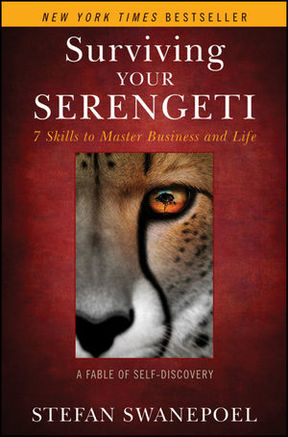 Rating: 4/5 This book is a cross between fiction and reality. A couple vacation in the Serengeti away from their busy humdrum lives in America. The animals they encounter in the Serengeti teach them things about life and business that they had forgotten. They learn that:
Over long distances a wildebeest will outrun the faster running cheetah because it has much more endurance. You need that kind of endurance to survive in business and in life. Opportunism is described not with the negative connotations that it often is but in the sense of being ready to take advantage of opportunities that come your way. Opportunities usually present themselves and then disappear for good and it is up to you to a) see these opportunities and b) take advantage of them. The cheetah is the fastest mammal but it can’t maintain that speed for more than a few seconds so it has to skilfully get within “winning” distance of its prey before making its move. Add to these skills grace, strategic decision making, educated risk taking and excellent communication skills and you will be a sure-fire winner in business and in life. Surviving Your Serengeti is available on amazon.com and amazon.co.uk. |
Heather Katsonga-WoodwardTime allowing, I love to read. If I read anything interesting, I will blog about it here. 2019 Life and Career PlannerCategories
All
Archives
January 2019
|
Heather Katsonga-Woodward, a massive personal finance fanatic.
** All views expressed are my own and not those of any employer, past or present. ** Please get professional advice before re-arranging your personal finances.
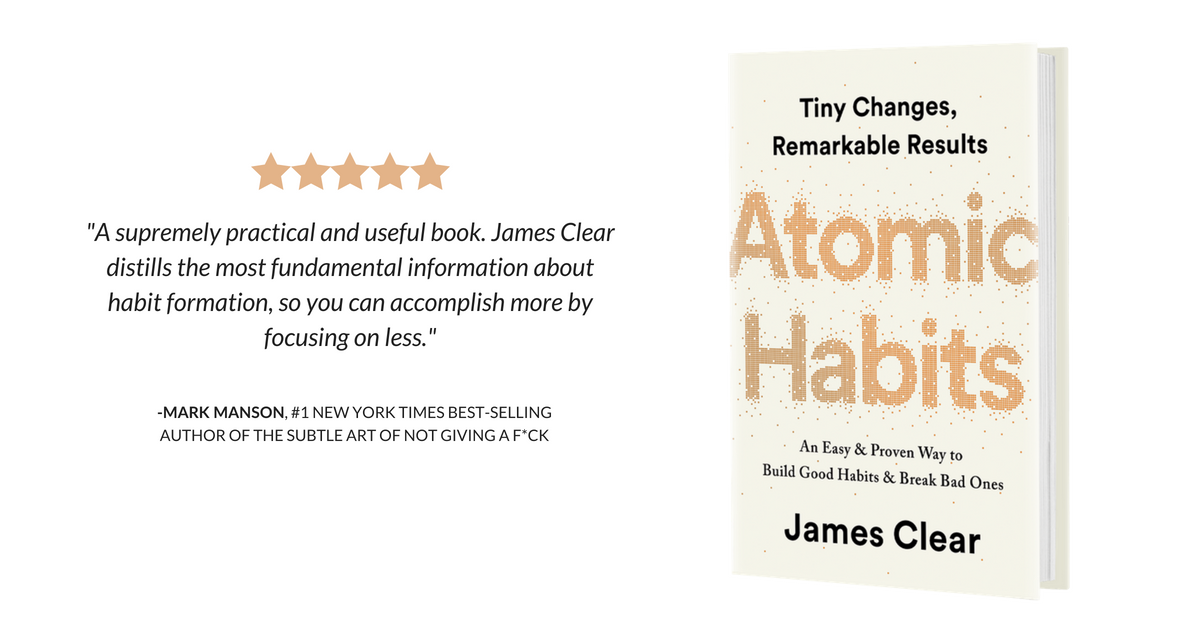
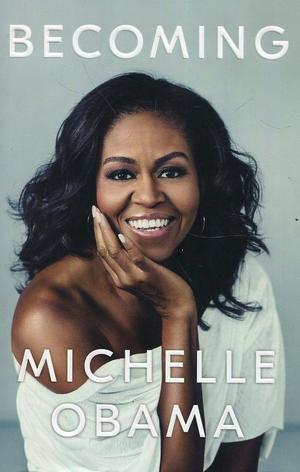
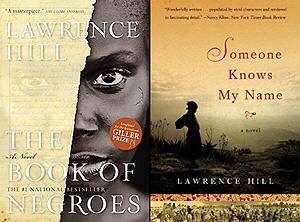
 RSS Feed
RSS Feed
